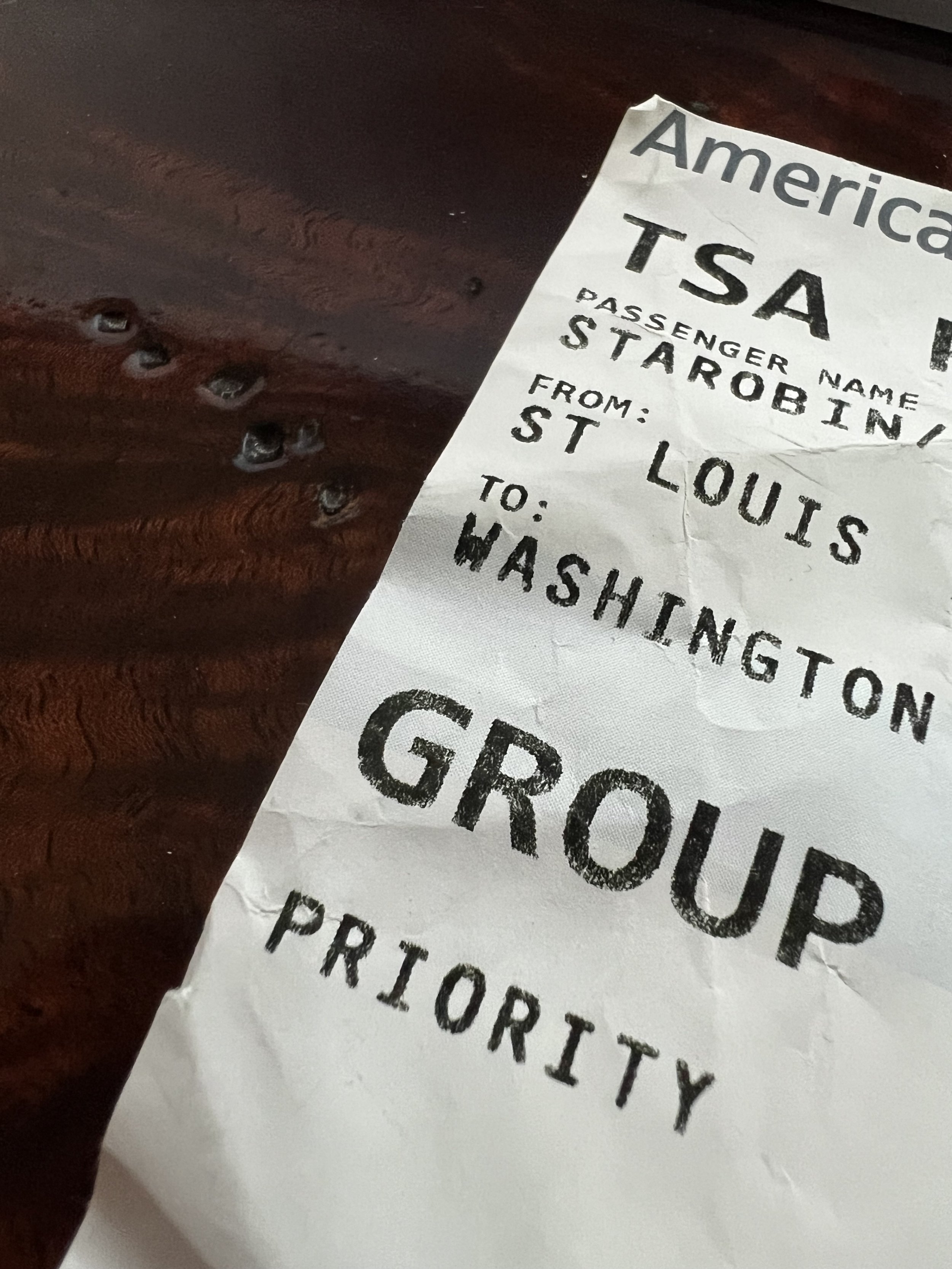Finding the Ground from 37,000 Feet
Travel anywhere means interacting with people you don’t know. Sometimes those meetings present decisive moments: get up and get involved….or not?
37,000 feet above the Earth, I started the conversation the same way I would have on the ground. “What’s your name?”
The woman couldn’t catch her breath, trembling with panic, an unknown pain in her eyes. We sat on the floor of the galley in the back of a packed Airbus A321 bound for Washington DC. I told her my name. She told me hers, and as I did so I helped her lie back on the grimy floor while flight attendants, a passenger who was a nurse, and another passenger tried to raise her legs, struggle with a finicky blood pressure monitor, and unpack an oxygen mask. The plane shook in turbulent Midwestern skies, and the woman on her back shook in fear, her pulse rising to 120 BPM.
Who could possibly have predicted this predicament?
The irony here is that this is not too different from my day to day experience as a counselor, minus the airplane drama, of course.
Anybody who cares about this work knows that there’s no way to predict what’s about to walk in the door. In fact, that’s one of the reasons I love what I do. That’s one of the reasons my colleagues love what they do. We deal with people who need help, sometimes when they don’t expect it, or when their defenses are low. Sometimes people need help to work through a moment of crisis, and sometimes people need help through an extended period of sadness. Sometimes people simply need to talk about something they’re struggling to put into words, or haven’t a clue where to start, and wind up sitting across from me– a practical stranger– who says, “I’m here to listen.”
When I met this woman in the back of the plane, I had responded to an urgent call from the flight crew for people to come and help. As is always the case, our relationship began as strangers. Very quickly we dispensed with pretenses and I was soon holding her hand, speaking softly to her and helping her focus on minimizing the chaos surrounding us in our airborne microcosm of the world.
As unexpected as the experience may have been, it was also familiar. I know that everybody needs help sometimes, and I believe the best thing to do is just to start with the basics. Share names. Find easy moments of commonality. Find moments of calm, or ways to at least encourage calm. In a crisis, it’s natural to want to ask a million questions. Just as I experienced in the back of the plane, it was natural and even important for us to ask about her medical history, what had happened to provoke the current crisis, her elevated blood pressure and racing pulse. But just as vital was finding a way to calm everyone down, including all of the first responders, jumpy in the effort to find answers while working to get everyone safely to ground. In so doing, the effort to create calm helped us all help her. I know it helped me help her.
When I think of my career as a counselor, I think of the way I like to walk in the world. Like all people, I’m better at it some days than others; what I strive for and what I achieve are not always congruent. But most of all, I know that the work means something when I’m able to be part of someone else’s life. When I got off the plane in Washington, I realized it was unlikely I would ever see this woman again. The EMT crew wheeled her off quickly, and for a variety of reasons I didn’t have contact information to follow up. The flight crew thanked me; the critically helpful nurse, thanked me; the helpful guy from the back of the plane thanked me. We were all relieved to have had each other to share in this experience of helping a stranger.
Except now, a few hours after the experience, I am aware of something transformative. That woman in the back of the plane is no longer a stranger. She’s someone in the same world in which I live, and I’m just glad we were able to meet each other when she was in need and I could offer something to help her. As I reflect on the experience, I’m also aware there’s something deeper, beyond my own professional experience as a counselor. Everyone needs help from time to time, sometimes for small things, sometimes for big things. Collectively we don’t have to share the same tastes or values about everything in the world, but I sincerely believe we are all better when we at least share a commitment to care for each other, regardless of circumstance. That commitment prompted me to leave my seat and hunker down in a tight airplane galley with someone I didn’t know. But what that experience did for me is reinforce just how deeply I believe in that commitment to care, and also why I love what I do.


